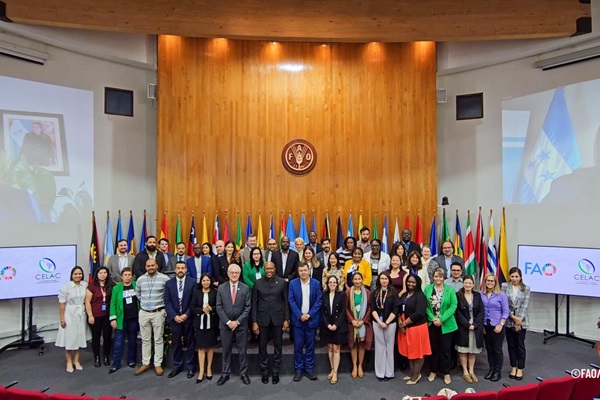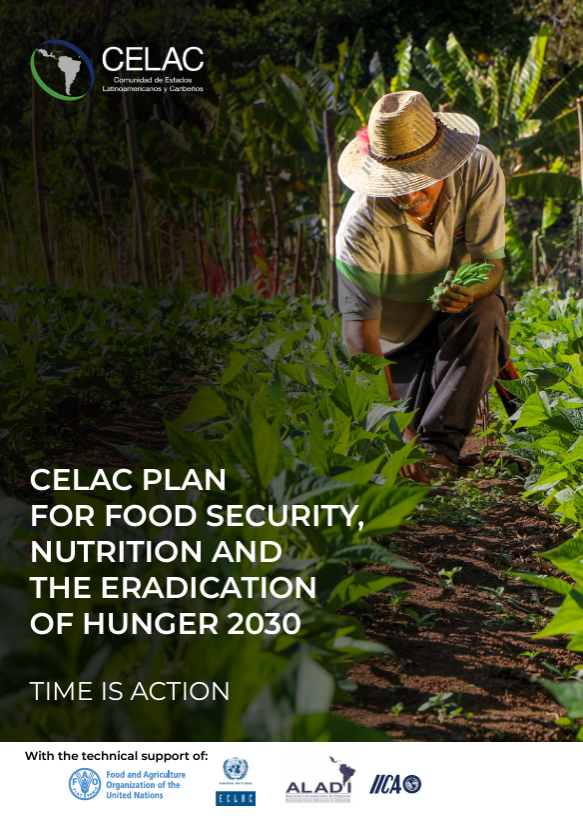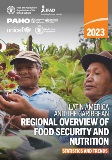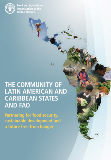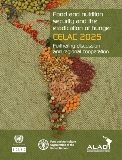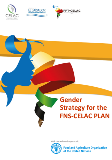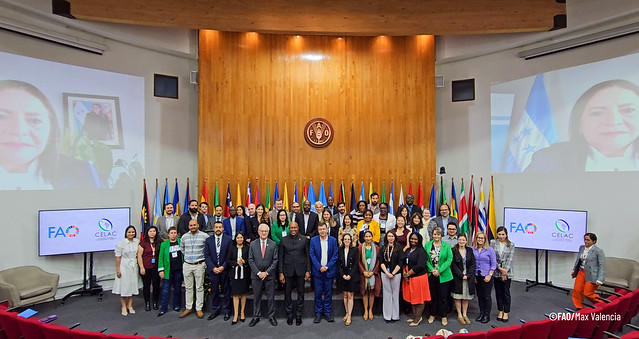FAO Regional Office for Latin America and the Caribbean
What is CELAC?
The Community of Latin American and Caribbean States, known as CELAC, is the result of several multilateral bodies established by Latin American countries to seek peace, socio-economic development and integration for the region. It was created in February 2010 at a session of the Latin American and Caribbean Summit (CALC), held in Playa del Carmen, Mexico. Subsequently, at the Caracas Summit in Venezuela in December 2011, CELAC was definitively established.
This community is an instrument to make viable and strengthen the region's participation through a voice in multilateral negotiation processes, extra-regional cooperation, and political dialogue in the face of the different challenges of the current economic, social and political system that seeks equitable development.
CELAC Food Security, Nutrition and Hunger Eradication Plan
The CELAC Food Security, Nutrition and Hunger Eradication Plan (CELAC FSN Plan) 2025 is the result of the political will of the 33 countries of the region to eradicate hunger and poverty by 2025.
The plan brings together the main successful food security policies and initiatives developed by the countries of the region and has become the main roadmap towards the advancement of Sustainable Development Goal (SDG) 2: Zero Hunger by 2025.
The declaration of Buenos Aires, Argentina 2023 expresses the need to update the CELAC Food Security, Nutrition and Hunger Eradication Plan 2025, "considering the new international context and the challenges facing our region". This process began the same year and is led by the Pro Tempore Presidency (PTP) CELAC with the technical assistance of FAO, ECLAC, IICA, ALADI and other international cooperation agencies
Latin America and the Caribbean seeks to eradicate hunger
Since the Summit of Heads of State and Government of CELAC, held in Chile in 2013, the eradication of hunger was assumed as a priority by the community. This summit recognized the pioneering role of the Hunger Free Latin America and the Caribbean 2025 Initiative, as the first pact through which the region decided not only to reduce, but to eradicate hunger.
The II Summit of CELAC, held in January 2014 in Havana, Cuba, requested FAO, ALADI and ECLAC to prepare a food security plan for the region.
During the III Summit of Heads of State and Government of CELAC, held in 2015 in San Jose, Costa Rica, the countries formally adopted the CELAC Food Security, Nutrition and Hunger Eradication Plan 2025.
At the VII Summit held in 2023 in Buenos Aires, Argentina, CELAC promotes the updating of the Food Security, Nutrition and Hunger Eradication Plan in line with the 2030 agenda, according to the new international context and the challenges faced by the region.
This plan has become a milestone for global food security, serving not only as the main tool for food security in Latin America and the Caribbean, but also as a model that other regions of the world can replicate.
- Four pillars of the CELAC Food Security, Nutrition and Hunger Eradication Plan 2025
- Pillar 1: Coordinated food security strategies through the formulation of national and regional public policies to face the challenges of food security, with a gender approach and incorporating a human rights perspective, in particular the Human Right to Food
- Line of Action 1: Strengthening institutional frameworks for Food Security and Nutrition (FSN).
- Line of Action 2: Facilitating Intraregional Food Trade.
- Line of Action 3: Food Waste and Losses (FWL).
- Line of Action 4: Food Supply Program.
- Pillar 2: Timely and sustainable access to safe, adequate, sufficient, culturally relevant nutritious food for all people, especially the most vulnerable, in order for them to develop and fully maintain their physical and mental faculties.
- Line of Action 5: Conditional Transfer Programs (CTP)
- Line of Action 6: Labor market
- Line of Action 7: Family Farming
- Pillar 3: Nutritional wellbeing and assurance of nutrients for all vulnerable groups, respecting the diversity of eating habits
- Line of Action 8: School Feeding Programs
- Line of Action 9: Nutritional wellbeing
- Pillar 4: Stable production and timely attention to socio-natural disasters that can affect food availability
- Line of Action 10: Emergencies and natural disasters
Member countries of the CELAC
Antigua and Barbuda
Argentina
Bahamas
Barbados
Belice
Bolivia
Brazil
Chile
Colombia
Costa Rica
Cuba
Dominica
Dominican Republic
Ecuador
El Salvador
Granada
Guatemala
Guyana
Haiti
Honduras
Jamaica
Mexico
Nicaragua
Panama
Paraguay
Peru
Saint Kitts y Nevis
Saint Vincent and the Grenadines
Saint Lucia
Surinam
Trinidad and Tobago
Uruguay
Venezuela
Noticias

CELAC adopts gender approach to ensure the impact of its hunger eradication plan
26/01/2017
January 26, 2017, Dominican Republic - The Heads of State and Government of the countries of the Community of Latin American and Caribbean States (CELAC) approved the gender strategy of thei...
